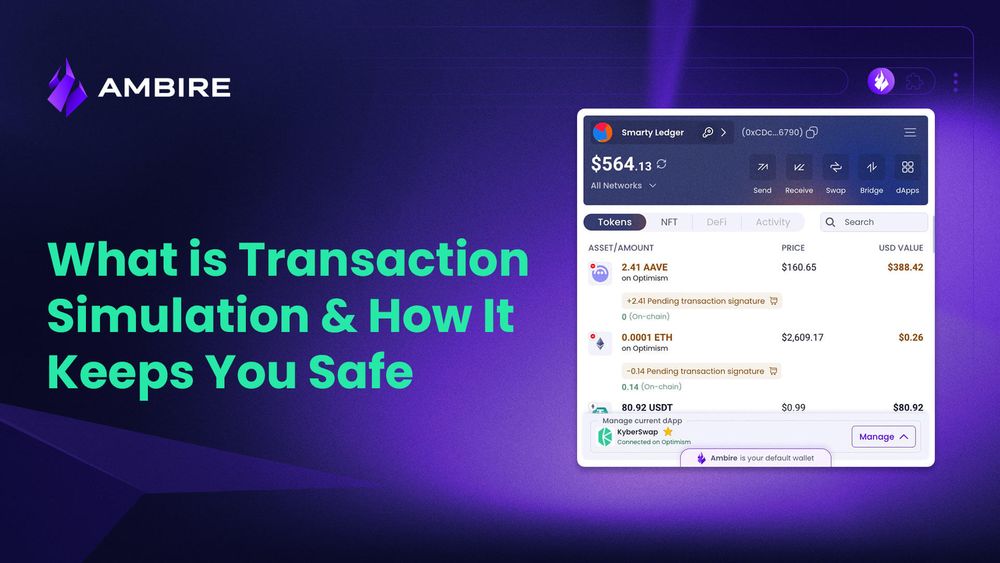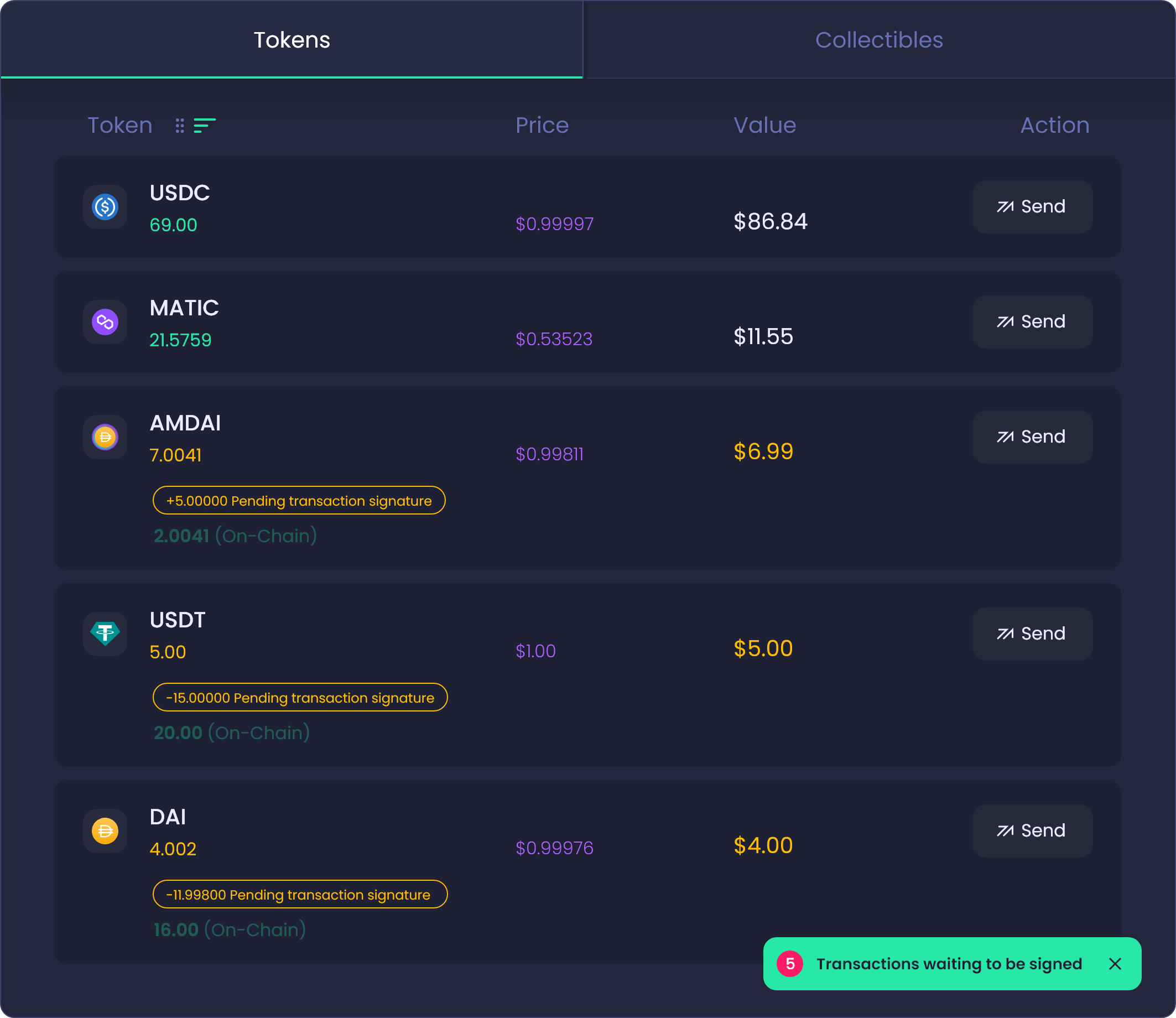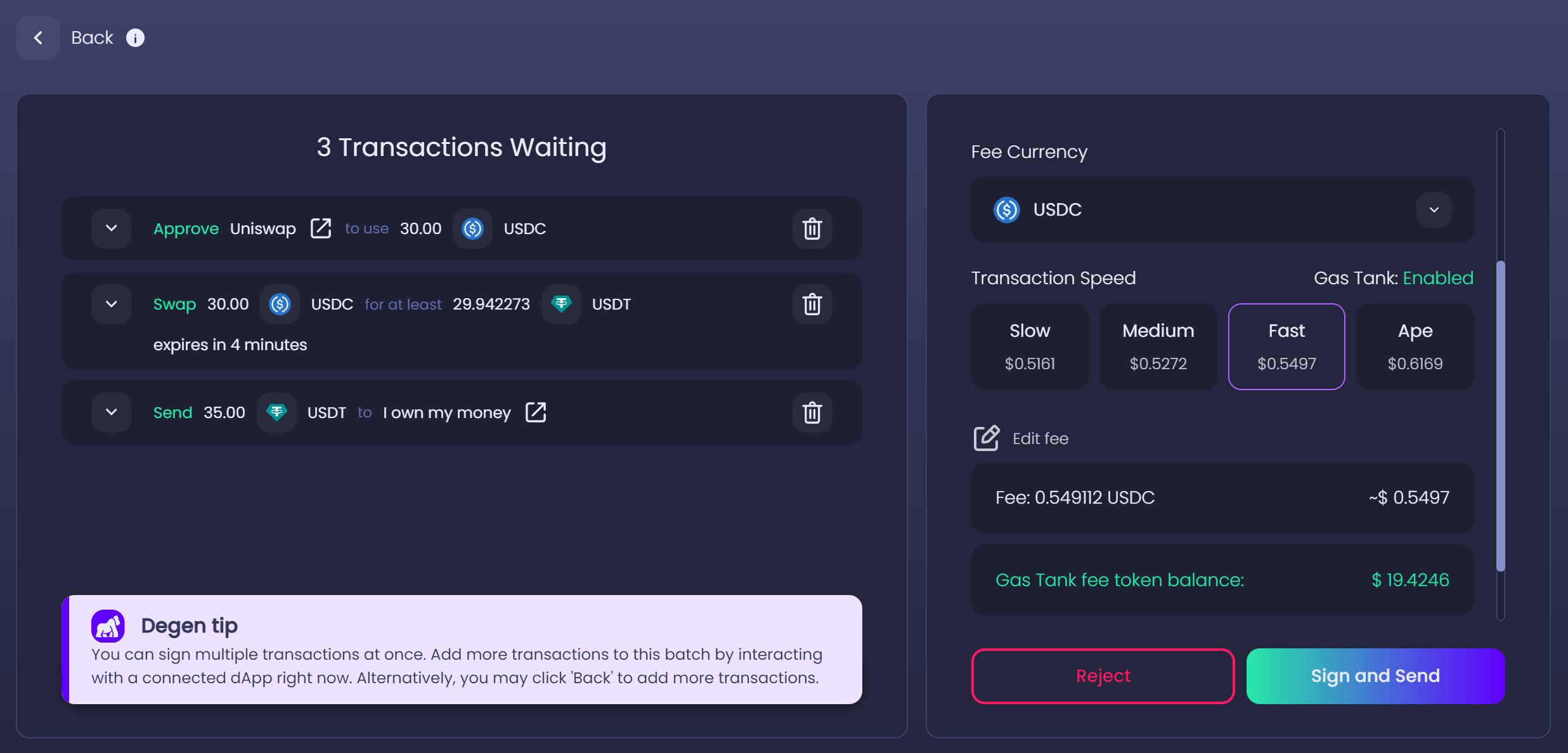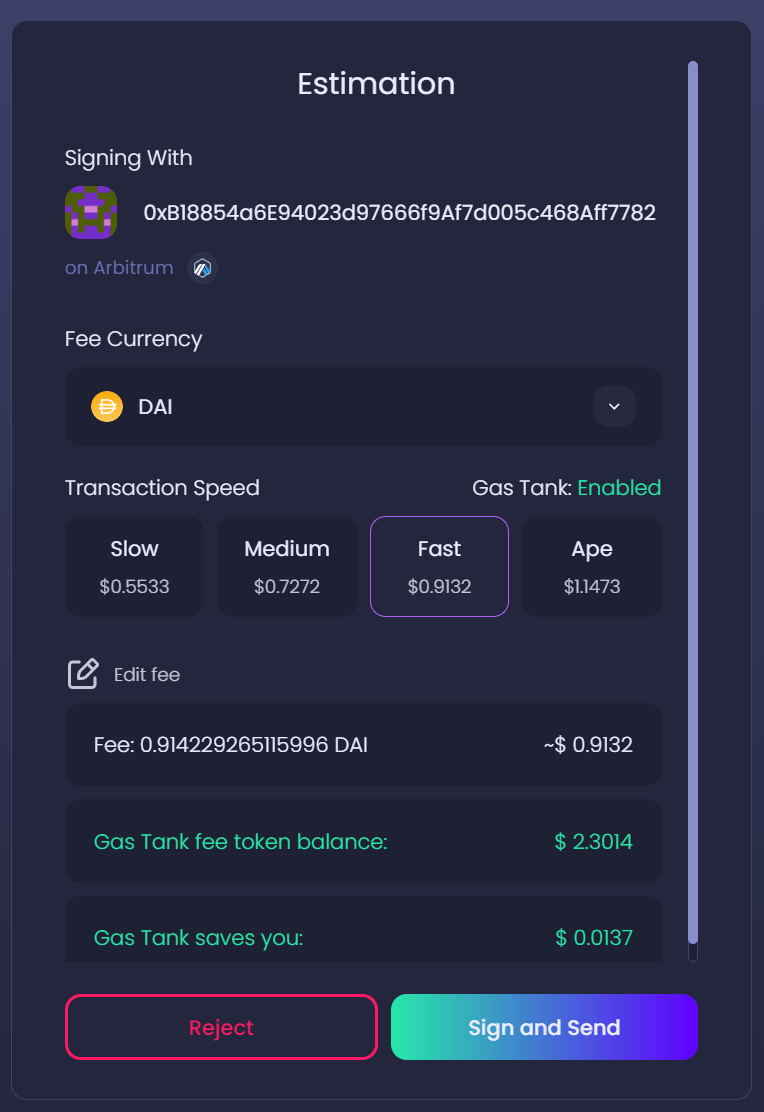What is Transaction Simulation, and How It Keeps You Safe
Ambire Wallet's transaction simulation feature offers a proactive approach to blockchain security, enabling users to foresee transaction outcomes and manage gas fees effectively for optimized transactions.

In blockchain's dynamic and intricate world, the saying "look before you leap" resonates more profoundly than ever. This is where transaction simulation, a powerful tool, steps in. Ambire Wallet takes full advantage of this innovation, utilizing account abstraction (AA) to elevate the transaction simulation experience. This article delves into how Ambire Wallet, through its unique approach to transaction batching and versatile gas payment options via the Gas Tank feature, revolutionizes transaction simulation, reinforcing its critical role in enhancing security, boosting efficiency, and improving overall usability in blockchain transactions.
What is transaction simulation?
Transaction simulation, often called "dry runs," is a process used to predict the outcome of a transaction before it is broadcasted to the blockchain. This is particularly useful for smart contracts and decentralized applications (dApps) to ensure that transactions behave as expected before being broadcasted on-chain.
Transaction simulation is crucial in enhancing security and preventing malicious transactions in Web3. You can scrutinize the transaction for any potentially harmful or unexpected behavior by simulating it before execution. For instance, when interacting with a new dApp or executing a smart contract function, a simulation can reveal if the transaction triggers any unauthorized token transfers or accesses to your wallet that weren't disclosed or expected. This is especially vital in detecting and avoiding scams or malicious contracts that could drain funds from you.
Moreover, in DeFi, transaction simulation helps identify contracts susceptible to exploits, like reentrancy attacks, by closely observing how the contract responds to simulated inputs. This level of scrutiny is impossible with traditional on-chain transactions, which are irreversible once executed.
Benefits of simulating transactions before signing them
Transaction simulation is associated with a powerful feature: foreseeing future balances before signing a transaction, but this isn’t the only advantage you get. Let’s review some of the main benefits, shall we?
Preventing financial losses
Blockchain transactions are irreversible. Once a transaction is signed, it cannot be undone or altered. Simulation allows you to foresee potential issues or unintended consequences, significantly reducing the risk of irreversible mistakes. For instance, in DeFi interactions, you can simulate trades, swaps, or liquidity provisions to ensure they won't result in unexpected losses, like slippage or poor trade execution.
Understanding transaction outcomes
Blockchain transactions, especially those involving complex smart contracts or DeFi protocols, can have outcomes that are not immediately obvious. Simulation clarifies what will happen when the transaction is executed, ensuring you are fully informed of what you are signing. In scenarios like voting in DAOs or executing complex financial strategies, transaction simulation can help you understand the implications of your decisions, leading to more informed and safer choices.
Gas fee estimation and cost savings
Ethereum transactions require gas fees, which can be substantial depending on network congestion and transaction complexity. Simulating transactions helps estimate the required gas, preventing you from overpaying or underpaying, which can lead to transaction failure.
Overpaying gas fees unnecessarily inflates transaction costs, while underpaying can lead to stuck transactions. Simulations provide accurate gas estimates, helping you to set appropriate gas limits and prices, thus avoiding these issues.
Ambire Wallet's approach to transaction simulation
Ambire Wallet redefines transaction simulation by integrating account abstraction and transaction batching. Account abstraction, as leveraged by Ambire Wallet, enhances your operations by abstracting complex account details and using smart contract accounts for more flexibility and security. Additionally, Ambire Wallet's transaction batching combines multiple transactions into one, streamlining the process and reducing costs. This approach ensures a more efficient transaction experience and bolsters security by minimizing exposure to potential threats.
It's truly mindblowing when you combine this with txn simulation to show how your balances change BEFORE you sign a bundle. 🤯
— Ambire Wallet (@AmbireWallet) March 1, 2023
here's a demo, but you can do this on Eth mainnet right now on Ambire pic.twitter.com/SQxeH0z4B0
When you are about to interact with a dApp or execute a smart contract function, e.g., a token swap, the wallet simulates the transaction and shows you the future balance in your account. This is invaluable for detecting any unauthorized actions in the contract, such as unexpected token transfers or access permissions that could compromise your assets. By allowing you to see the exact changes a transaction will make to your balances, Ambire Wallet's simulation capability provides you with a proactive defense mechanism.

Ambire Wallet's innovative approach to transaction simulation extends to its ability to batch transactions. Utilizing Аccount abstraction (AA), the wallet allows you to simulate and execute batch transactions where they can effectively utilize tokens not yet officially in your account. This is achieved through smart contract logic that recognizes bundled operations as consecutive. As a result, you can preview your hypothetical balance and use tokens from operations within the same bundle, opening up many opportunities in DeFi.

In terms of gas management, Ambire Wallet offers a forward-thinking solution. It introduces the capability to pay gas fees using any token you own, not just Ethereum. This flexibility is further enhanced by the unique Gas Tank feature, allowing you to prepay gas on one chain and use it across all others supported by the wallet. When combined with transaction batching, this functionality can significantly reduce gas transfer fees (over 20% on average), particularly during periods of high network congestion. This dual advantage of flexibility in gas payment and cost reduction through batching represents a major effort forward in efficient blockchain transaction management.

Summary
Throughout this exploration, we've seen the indispensable role of transaction simulation in the blockchain ecosystem, particularly through the lens of Ambire Wallet. By harnessing account abstraction and implementing advanced features like transaction batching and the Gas Tank feature for flexible gas payments, Ambire Wallet sets a new standard for transaction security and efficiency. The wallet simplifies complex blockchain operations and instills confidence in you, ensuring that digital transactions are executed with the utmost precision and foresight. Ambire Wallet's commitment to enhancing transaction simulation marks a significant stride in the journey towards a more secure, efficient, and user-friendly Web3 world.
Interested in Ambire? Follow us:
Discord | X (Twitter) | Reddit | GitHub | Telegram | Facebook
